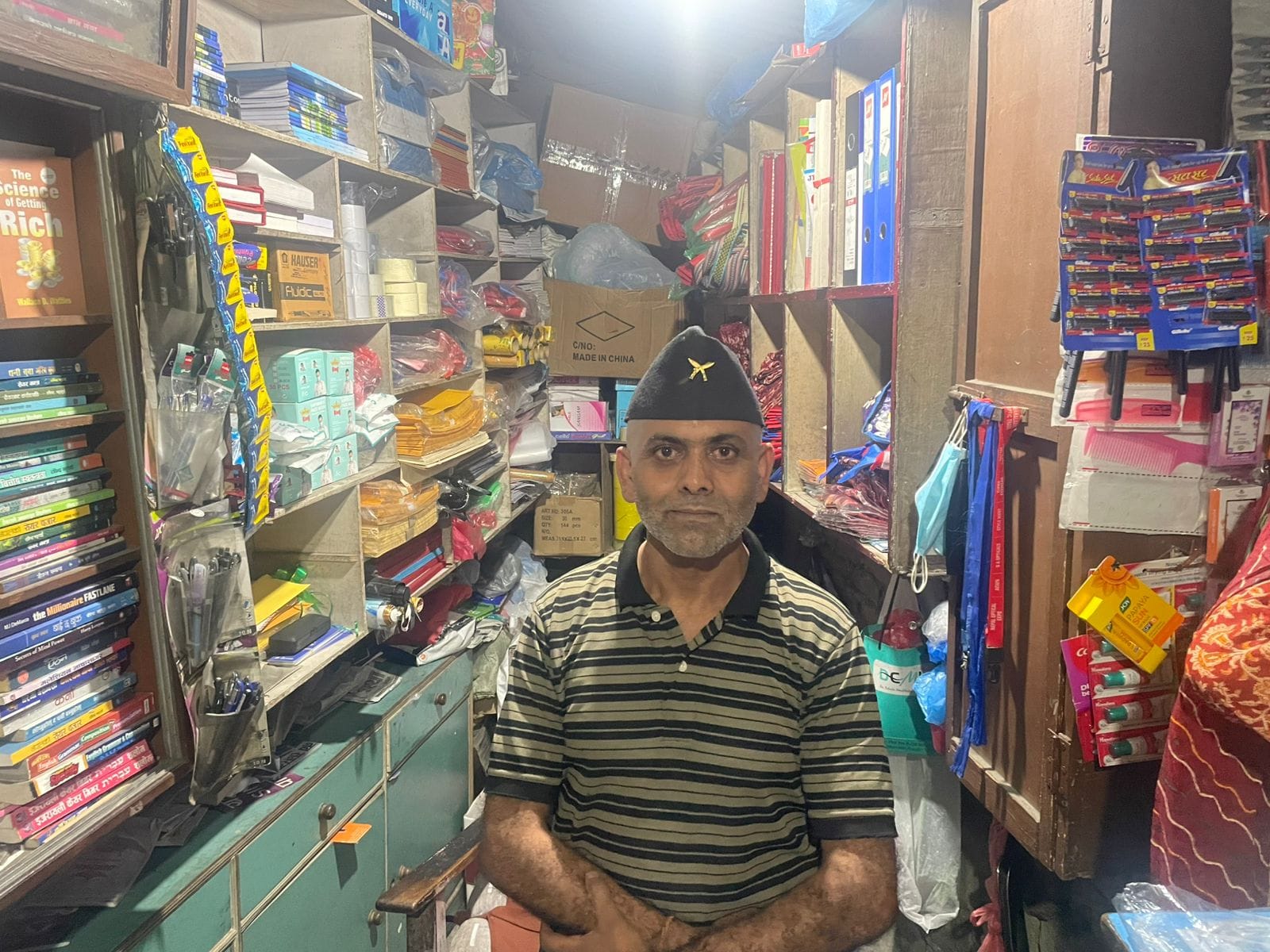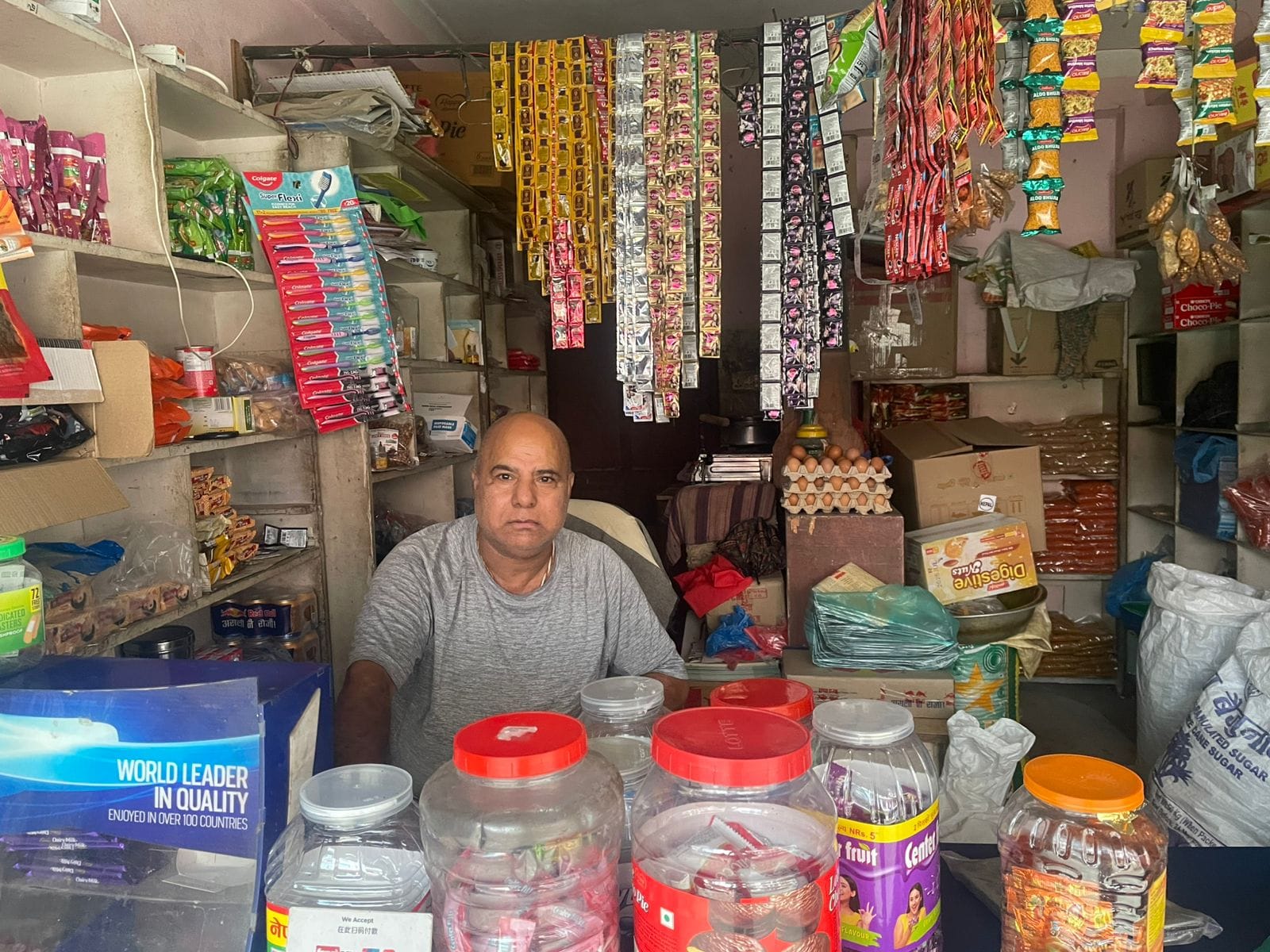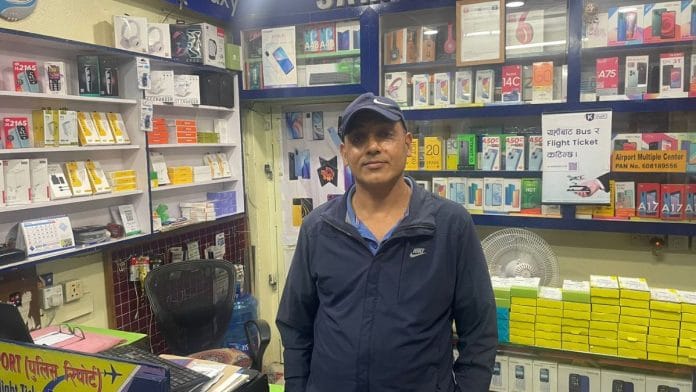Kathmandu: A day after the military curfew was lifted in Kathmandu, the city’s older residents opened their stores, resumed their evening walks and returned to life as it was before it was interrupted by the largely Gen Z-driven protest.
The country’s youth—angered by the alleged corruption and nepotism plaguing the political
class—has successfully overthrown the government led by former Prime Minister K.P. Sharma Oli. Although many 50- and 60-year-olds stayed at home while chaos reigned outside, they saw the protests as a movement long overdue.
“When a Nepali is born, he already has a loan of NPR 90,000 on his head,” said Vishnu Neupane, 53, explaining the need for financial assistance while living in a country that lacks opportunities. “Corruption should not just be reduced but completely eradicated. All the country’s problems boil down to it.”
Neupane, who runs a small stationery shop right outside the capital’s airport, didn’t take part in the protests. But he nodded in silent approval as the young took to the streets, demanding a better future for themselves.
“Why do you think the elderly remained silent as the protests went on?” asked Neupane, wearing a traditional Dhaka cloth hat as customers bought pens and notebooks. “Because this government did not provide any services to its people. Overthrowing the government would not have any negative impact on their lives.”

Because of the country’s poor employment landscape, Neupane’s son left the country two years ago to work in Australia. While in Kathmandu, he worked in a private bank as a branch manager earning NPR 22,000 despite his master’s degree. “I’m not happy he left, but at least in the future he can achieve something,” said Neupane.
‘State govts not doing anything’
Most of the country’s young adults don’t remember much before Nepal transitioned from a monarchy to a federal democratic republic in 2008. But for those who lived through both periods, corruption is a systemic issue attributed to the declaration of seven provinces (or states) when a new constitution was adopted in 2015.
“In such a small country, the state governments are not doing anything,” said Nakul Gyawali, 62, in his small convenience store in Thamel, a popular tourist area in Kathmandu. “There is a parliament in every state, and each has ministers. Where are the expenses for running this system coming from?”
Gyawali went on to explain that in the previous system, under the monarchy, there
was one bicameral parliament with 205 members in the house of representatives
and 65 members in the national assembly. At the time, the country was divided into
five development regions. Today, there are over 800 elected representatives across
both the federal parliament and provincial assembles.
“When democracy came in, it was a good thing. The public got to express their thoughts, but the way it came in was a different matter,” he said, adding that the increase in ministers drained public resources on salaries. “After we ran out of money, corruption seeped in everywhere.”

Gyawali said, that government departments just keep passing files and a private individuals work is not done unless money is paid under the table. And with three levels of governance —the municipality, province and federal level—taxes have also increased.
“That’s why GenZ protesters were out on the streets. They wanted clear accounts of what our taxes are being used for,” he said.
Comparisons with India
Narayan Dahan, 55, sits at his mobile and electronics store in New Baneshwor, near the Parliament building which was set on fire by Gen Z protesters. The past week’s events are being discussed in a programme showing on a TV set in his shop as he explains his frustration with the country’s bureaucracy and his support for the protest.
“My daughter graduated from Bangalore University (BU) after four years. But when applying for her master’s degree over here, Tribhuvan University didn’t recognise BU’s faculty,” said Dahan, adding that he had to go to a minister’s office to get his daughter’s credentials recognised. “Students who graduate from Oxford University also face this here. Is our education system superior to India or the United Kingdom?”
Dahan went on to compare India with Nepal, saying that even though corruption exists in both countries, work still gets done in India. “Prime Minister Narendra Modi is on his third term. If there was widespread unhappiness, this would not have happened. It shows that the government is in control over there,” he added.
Opposite Dahan’s store, 68-year-old Chuda Mani Ariyal sits with his two friends, silently watching people stroll by. A retired teacher of Nepali language, Ariyal reminisced about how the country’s oldest political parties initially worked towards improving the nation but have since lost their way.
“They have become selfish and forgotten their responsibility to the people,” said Ariyal, after highlighting that the Nepali Congress, Communist Party of Nepal (Unified Marxist–Leninist) and Communist Party of Nepal (Maoist Centre) did positively contribute to the country’s history.
“This is what happens when you ignore the demands of the people. Look at the damage to our national buildings,” he added. According to him, Nepal won’t have another election in six months despite the appointment of former Chief Justice Sushila Karki as interim Prime Minister.
“The Constitution and on ground reality will make it very difficult for her,” he said, comparing the situation to Bangladesh where even a year after former Prime Minister Sheikh Hasina was ousted, general elections have not taken place.
(Edited by Viny Mishra)
Also read: Nepal’s Gen Z are out on the streets, again. This time as volunteers, picking up the pieces







India is equally corrupt nation. The corruption has increased in last few years. It is not very far from Nepal on the world corruption chart. They are just praising due to common religion. Nothing more than that.